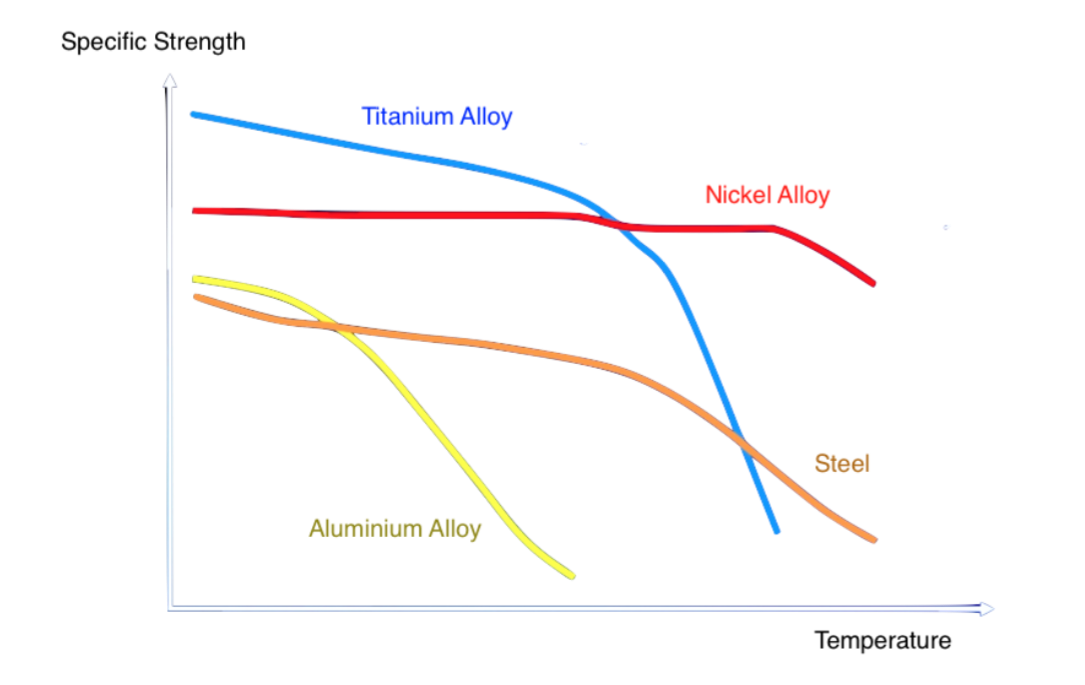Have found a reference to "high grade steel" and to titanium. According to the (paper format) book, the parameter that dimensions the compressor is the perimeter speed (tip speed) of the blades $u_2$.
For steel: maximum $u_2$ = 450 m/s. With a total inlet entry temperature of 300 K, pressure ratio is 4.2
For titanium which has a higher strength/mass ratio: $u_2$ can be up to 500 m/s, leading to a pressure ratio of 6.
The book was written at the time of the B757/767 engines so there may be more modern materials around.
Also refer to this answer.
Update
A more recent reference is provided by this presentation for the Trent 1000 engine:
- Fan and LP compressor blades are made from titanium alloy, containing small amounts of Fe, V, O, and Al.
- IP compressor: 8 stages of titanium blades.
- HP compressor: 6 stages of titanium blades.
The reason titanium is selected is that up to a certain temperature, titanium has the highest specific strength (strength/weight ratio), and in the compressor the temperatures stay below the transition temperature for nickel alloys:

